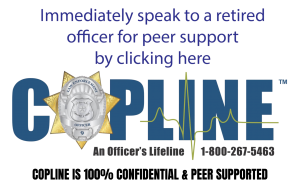Law enforcement is a high-stress profession that often requires individuals to make life-or-death decisions in high-pressure situations. The nature of the job and constant exposure to trauma and high-pressure situations can take a toll on the mental health of law enforcement officers, leading to conditions such as post-traumatic stress disorder (PTSD), depression, anxiety, and substance abuse.
Despite the prevalence of mental health challenges in the law enforcement community, seeking support for these issues is often stigmatized. Stigma surrounding mental health is a significant barrier to seeking help, and it can be especially pronounced in law enforcement. This stigma can have devastating consequences. Officers who do not receive the support they need may turn to unhealthy coping mechanisms such as alcohol or drugs. They may also experience burnout and job dissatisfaction, which can lead to a decline in job performance and even early retirement. Worse still, untreated mental health issues can lead to suicide. In fact, law enforcement officers are at a higher risk of suicide than the general population. There are several reasons why seeking mental health support is stigmatized in law enforcement:
The “Tough Guy” Culture
Law enforcement officers are often expected to be tough, resilient, and emotionally strong. The idea of seeking help for mental health issues may be seen as a sign of weakness, and officers may worry that it will affect their reputation and standing within their department.
Fear of Consequences
Some officers may be afraid that seeking mental health support will have negative consequences for their career, such as being seen as unfit for duty or being passed over for promotions.
Lack of Trust
Officers may not trust mental health professionals or worry that their confidential information could be used against them in the future.
Limited Resources
Police departments may not have adequate resources or funding to support mental health programs for their officers. This can lead to a lack of awareness and education about mental health issues and a lack of access to support services.
Stigma Within the Department
Even if an officer wants to seek mental health support, they may worry about the reaction of their colleagues or superiors. Stigma within the department can discourage officers from seeking help and create a culture where mental health issues are not taken seriously. Officers may fear that admitting they need help will make them appear weak or incompetent in the eyes of their peers or superiors. This stigma can prevent officers from seeking the help they need and contributes to the high rates of suicide among law enforcement officers.
These reasons can create a significant barrier for law enforcement officers seeking mental health support. However, it is essential to recognize the importance of addressing mental health issues within law enforcement. Ignoring these issues can lead to higher rates of stress, burnout, and even suicide among officers.
It’s important to note that seeking mental health support is not a sign of weakness. In fact, it takes incredible strength and courage to recognize when you need help and to take action to get it. By promoting a culture of openness and support around mental health, we can ensure that law enforcement officers receive the care they need to continue to serve and protect our communities.
If you are a police officer in distress:
If you are a police officer who is struggling with depression or suicidal thoughts, confidential help is always available to you.
Bank The Blue and CopLine are 100% confidential resources available to all law enforcement officers.
CopLine is a 24/7 hotline that officers can call anytime – day or night – to speak with a vetted and trained retired police officer who understands the stressors of your job. All calls are strictly confidential.


